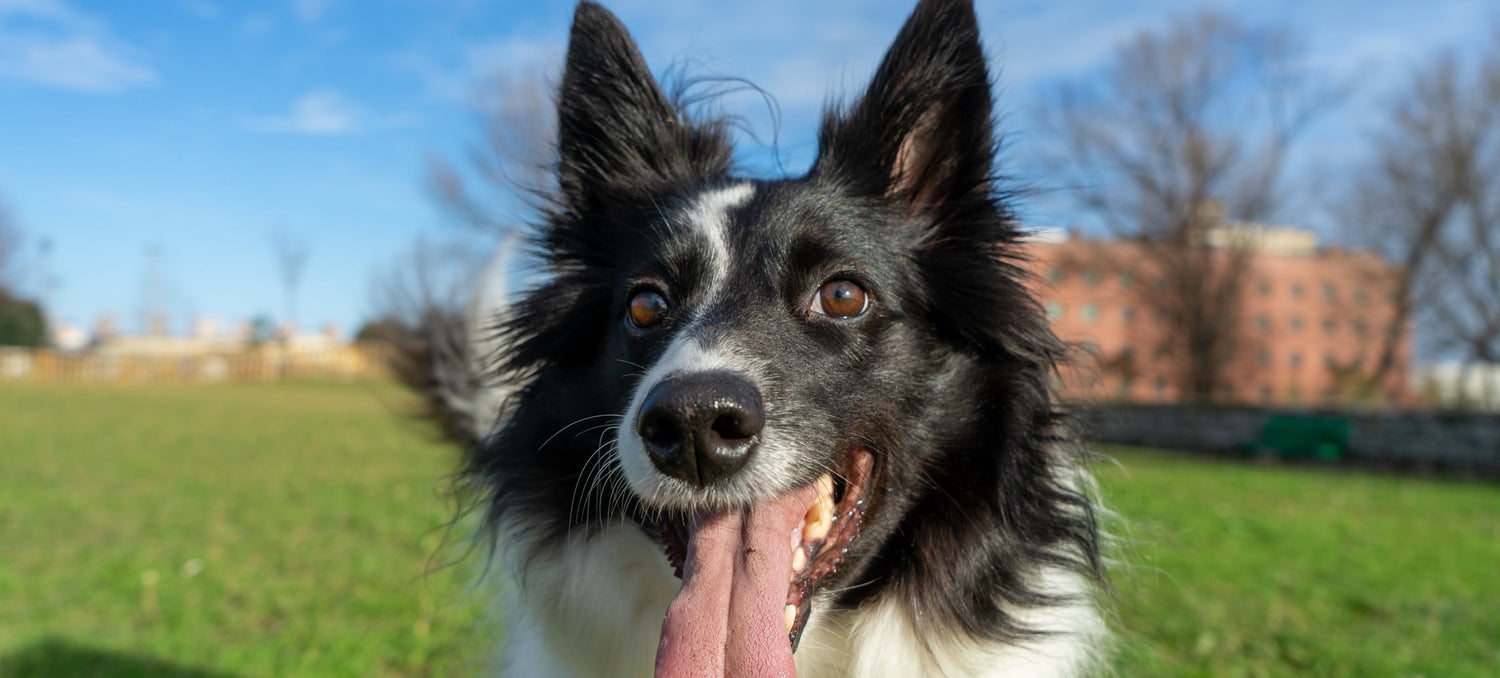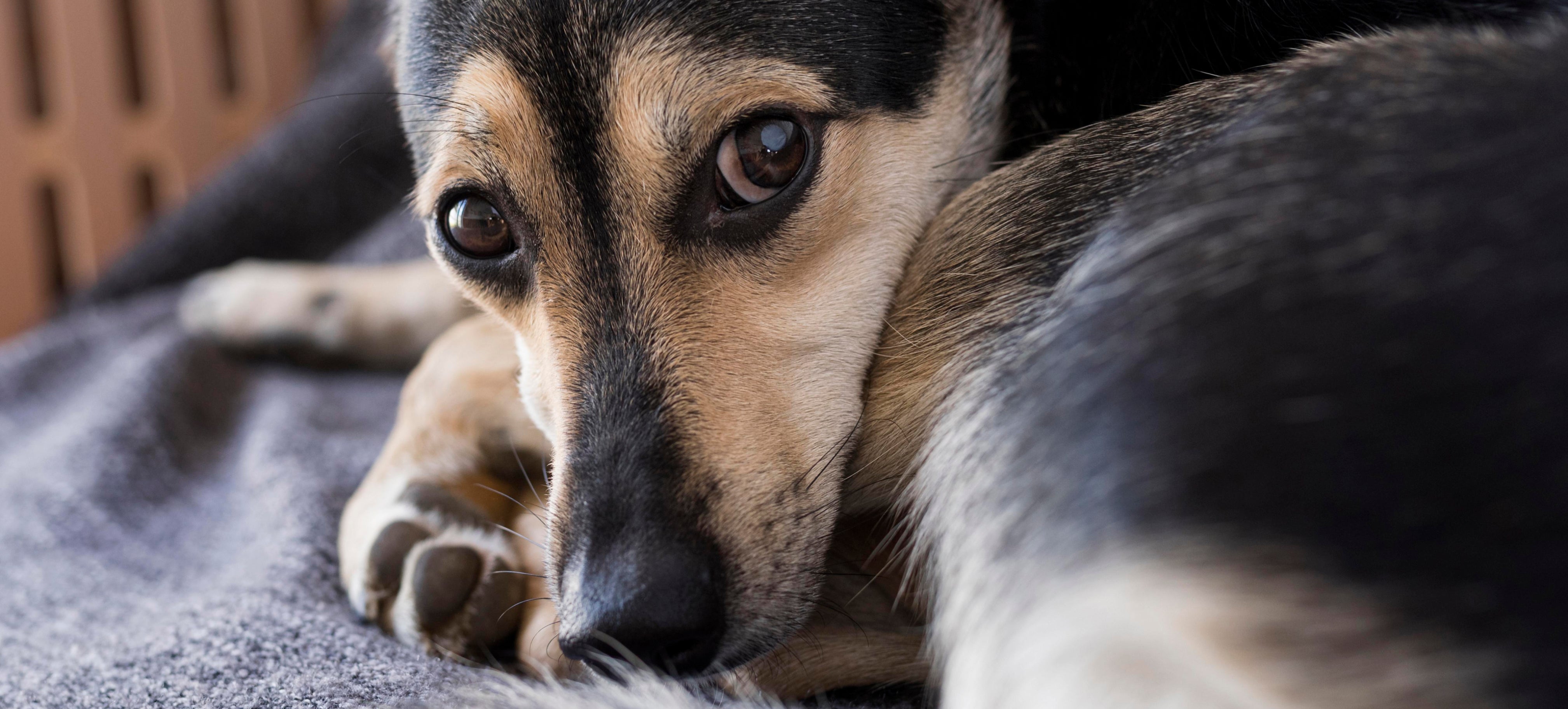Doggy kisses are awesome but doggy breath is not. Every dog parent we know has experienced being hit by an unexpected wave of hot and stinky breath while getting cozy with their pooch. So what causes bad breath dogs? Is it a problem that you can just brush away or should foul breath be a reason for concern? Let’s find out.
Common Causes of Bad Dog Breath
Stuck food or objects
Sometimes the reason behind your dog’s foul breath is food stuck in its mouth. But that’s not all. Because most dogs have a rather nasty habit of eating just about anything within their reach, it is not uncommon for various objects like fragments of sticks, bones, dead leaves, or the occasional cat poop, to get lodged between their teeth.
Poor oral hygiene
Plaque and tartar buildup is the perfect breeding ground for the bacteria that causes bad breath. If you haven’t been diligent about brushing your dog’s teeth and he or she doesn’t like to chew, then this can be the likely cause of its stinky breath.
Dental or Gum Disease
Over time, poor dental habits in dogs lead to a host of more serious problems like tooth decay, gum disease, or infection caused by either. According to the American Veterinary Medical Association, many dogs develop some sort or periodontal disease by the age of three. If your dog detests brushing, consider taking it to a veterinary dental specialist for a proper cleaning.
Kidney Disease
Not all causes of bad breath in dogs are innocent or simple. Bad breath in dogs can be a sign of a bigger problem and kidney disease is one of them. Waste products that are not eliminated by a problematic kidney can accumulate in the bloodstream and eventually affect the dog’s breath, sometimes making it smell like ammonia.
Liver Disease
When the liver stops ridding the body of toxins, sulfur compounds, like thiols for example, make their way to the lungs, making your dog’s breath smell moldy, or worse, like a rotting animal.
Diabetes
Diabetes is another serious disease that can affect dog breath, but not in the way you think. Instead of the breath smelling downright foul, a dog suffering from diabetes can have a strange sweet smell to its breath. If you observe this in your dog and you know that they haven’t been eating anything that smells fruity, then perhaps it’s time to consult the vet.
Though not all oral tumors cause canine bad breath, it is a possible reason. Some oral tumors grow rapidly and the blood vessels surrounding them are unable to develop quickly enough. As a result, the tissue dies and the spot becomes a breeding ground for bacteria.
Harmful substances
Dogs are smart but sometimes they’re not smart enough to avoid ingesting harmful substances like insecticides and other types of poison. If your dog’s breath smells oddly chemical and you suspect they’ve eaten something they shouldn’t have, call your vet right away.
Oral or Gut Microbiome Imbalance
Not all bacteria are bad. As a matter of fact, some types of bacteria are essential for maintaining good health, not just in dogs but in humans too. Gut (and oral) microbiome refers to the microorganisms in the stomach (and in the mouth). Most healthy adult dogs have a stable gut microbiome but age and other environmental factors can change this. Dogs suffering from various diseases are found to have an imbalanced gut microbiome. The imbalance or overgrowth of bad bacteria, particularly in the small intestine, can cause pungent gas that gets absorbed in the bloodstream, causing nasty breath.
How to Prevent Bad Breath in Dogs
Most dogs with stinky breath suffer from gum disease so it’s important to establish good dental hygiene for your fur baby. Small changes to their diet can also do wonders in improving their oral and gut health.
- Brush your dog’s teeth regularly using toothpaste made specifically for dogs. This is the best way to remove the buildup of plaque. If your dog hates the traditional doggy toothbrush, there are silicone brushes that can fit on your finger for a more comfortable experience.
- Give your dog dental chews. These yummy “treats” are not just for keeping boredom at bay for a few minutes -- they are actually good for your dog’s dental health. The chewing action helps eliminate plaque on the teeth’s surface and it also increases saliva production which helps clean out bacteria in the mouth. However, be mindful when choosing chews and go for natural products when possible. Dehydrated cow ears, hooves, and various animal tendons are great single-ingredient and healthy chews.
- Add high-quality kibble to their diet. Dry dog food can aid in scraping away build on your dog’s teeth.
- Make a habit of checking your dog’s mouth for signs of dental and gum issues. Take note of any unusual smells, growth, or color that you encounter.
- Consider supplementing your dog’s diet with probiotics, nutritional algae, coconut oil, or herbs like parsley or peppermint. These additions to your dog’s usual diet will not only help eliminate bad odors in the mouth but can also improve overall health.




Leave a comment
All comments are moderated before being published.
This site is protected by hCaptcha and the hCaptcha Privacy Policy and Terms of Service apply.